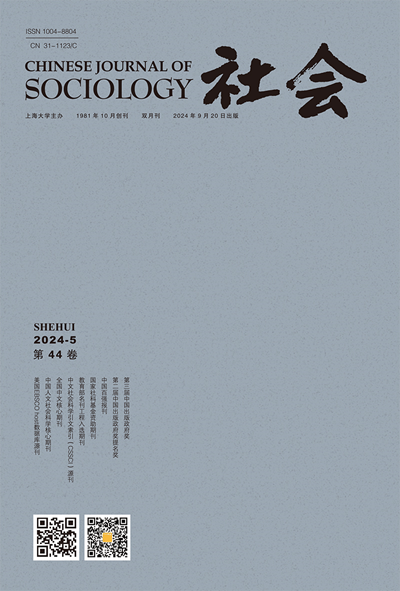Does cram school participation bring about negative emotions? Causal inference based on Chinese Education Panel Survey (CEPS) data
IF 1.8
4区 社会学
Q2 SOCIOLOGY
引用次数: 0
Abstract
This study focuses on the causal relationship between teenagers’ participation in cram schools and their emotional well-being. Our analysis is based on Chinese Education Panel Survey data (CEPS 2013–2015). We construct instrumental variables and introduce lagged variables to mitigate possible endogeneity problems. The major findings are as follows. First, the participation of socioeconomically disadvantaged teenagers in cram schools significantly exacerbates their negative emotions. Teenagers of advantaged family socioeconomic status (SES) show better ability in emotion regulation and in avoiding specific negative emotions. Second, we explore class heterogeneity in emotion regulation. Specifically, we propose a preliminary theoretical framework based on a typology of parenting styles. We conjecture that parents of different social classes may respond differently to their children's negative emotions. And for children who attend cram schools, there might be intergroup disparities in their own emotion-regulation ability by their class origins. Empirically, we carry out a counterfactual analysis to further illustrate the association between class difference in emotion regulation and that in the depressive effect of cram school participation, providing supporting evidence for our theoretical framework. In sum, our study is helpful to further our understanding of the implications of emotional health inequality which may derive from the “shadow education” system.参加补习班会带来负面情绪吗?基于中国教育专题调查数据的因果推理
本研究主要探讨青少年参加补习班与情绪健康之间的因果关系。我们的分析基于中国教育小组调查数据(2013–2015年CEPS)。我们构造工具变量并引入滞后变量来缓解可能的内生性问题。主要发现如下。首先,处于社会经济劣势的青少年参加补习班会大大加剧他们的负面情绪。家庭社会经济地位优越的青少年在情绪调节和避免特定负面情绪方面表现出更好的能力。其次,我们探讨了情绪调节中的阶级异质性。具体而言,我们提出了一个基于育儿方式类型学的初步理论框架。我们推测,不同社会阶层的父母对孩子的负面情绪可能会有不同的反应。对于上补习班的孩子来说,由于他们的阶级出身,他们自己的情绪调节能力可能存在群体间的差异。在实证上,我们进行了反事实分析,以进一步说明情绪调节的阶级差异与补习班参与的抑郁效应之间的联系,为我们的理论框架提供支持性证据。总之,我们的研究有助于进一步理解“影子教育”制度可能带来的情绪健康不平等的影响。
本文章由计算机程序翻译,如有差异,请以英文原文为准。
求助全文
约1分钟内获得全文
求助全文
来源期刊

社会
Social Sciences-Social Sciences (all)
CiteScore
1.70
自引率
0.00%
发文量
6799
期刊介绍:
The Chinese Journal of Sociology is a peer reviewed, international journal with the following standards: 1. The purpose of the Journal is to publish (in the English language) articles, reviews and scholarly comment which have been judged worthy of publication by appropriate specialists and accepted by the University on studies relating to sociology. 2. The Journal will be international in the sense that it will seek, wherever possible, to publish material from authors with an international reputation and articles that are of interest to an international audience. 3. In pursuit of the above the journal shall: (i) draw on and include high quality work from the international community . The Journal shall include work representing the major areas of interest in sociology. (ii) avoid bias in favour of the interests of particular schools or directions of research or particular political or narrow disciplinary objectives to the exclusion of others; (iii) ensure that articles are written in a terminology and style which makes them intelligible, not merely within the context of a particular discipline or abstract mode, but across the domain of relevant disciplines.
 求助内容:
求助内容: 应助结果提醒方式:
应助结果提醒方式:


